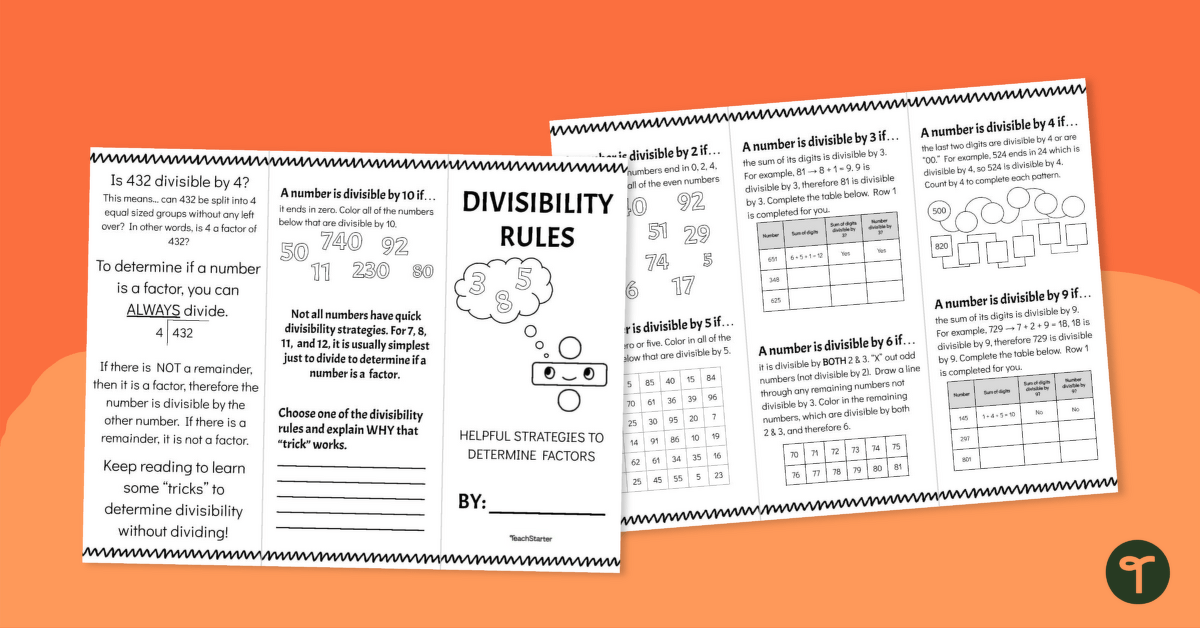Learn and apply the rules of divisibility by completing this math brochure template.
What Are the Rules of Divisibility?
Math is full of fun tricks, isn’t it? The little “tricks” or “rules” can help your students with more complex tasks and ultimately improve their math fluency. Rules of divisibility can help students determine if a number can be divided by another without actually completing the division problem and help when determining the factors of a number.
Teach Starter has created a resource you can use with your students to help them remember the different divisibility rules!
Before handing out the pamphlet, the teacher should review each rule with the students and give them a few minutes to complete the practice task. Students can then share with neighbors or with the class, and the teacher should demonstrate and reveal the correct completed practice to ensure students have properly filled in their pamphlets. There is an open-ended question on the back that students can fill out and discuss. If the rules have already been taught, students can complete the pamphlet more independently as a practice task.
This activity aims to provide a student-completed resource explaining and practicing rules of divisibility that they can use as a reference throughout the unit.
Tips for Differentiation + Scaffolding
A team of dedicated, experienced educators created this resource to support your math lessons.
In addition to individual student work time, use this pamphlet to enhance learning through guided math groups, whole class lessons, or remote learning assignments.
If you have a mixture of above and below-level learners, check out these suggestions for keeping students on track with the concepts:
🆘 Support Struggling Students
For struggling students, allow the use of a multiplication chart as a reference to show factor pairs up to 100. Allow the use of a calculator, working with a peer tutor, or one on one instruction.
➕ Challenge Fast Finishers
For students ready for a challenge, try teaching the more complex divisibility rules, such as 7. Then, apply these rules to larger 3 and 4-digit numbers.
Plan lessons for all ability levels with our 10 Best Scaffolding Strategies!
Easily Prepare This Resource for Your Students
Use the dropdown icon on the Download button to choose between the PDF or Google Slides version of this resource. An answer key is also included with this download.
This resource was created by Lorin Davies, a teacher in Texas and Teach Starter Collaborator.
Don’t stop there! We’ve got more activities and resources that cut down on lesson planning time:

teaching resource
Factor Pairs – Task Cards
List the factor pairs of each product with this set of 24 task cards.


0 Comments
Write a review to help other teachers and parents like yourself. If you'd like to request a change to this resource, or report an error, select the corresponding tab above.